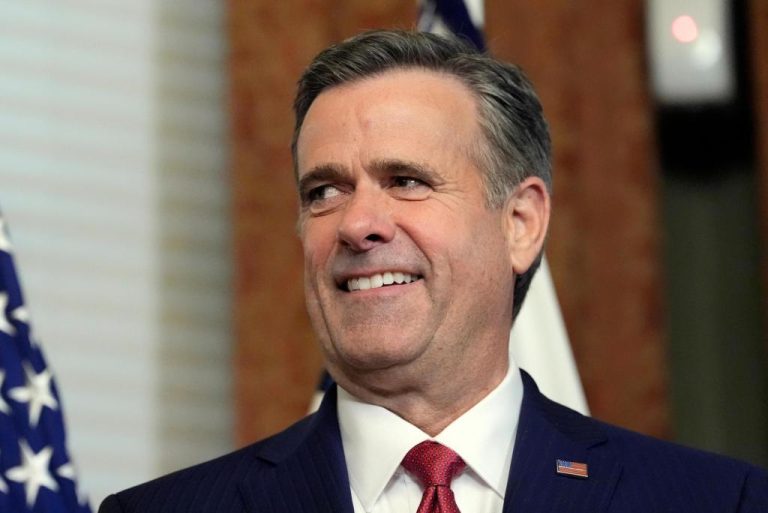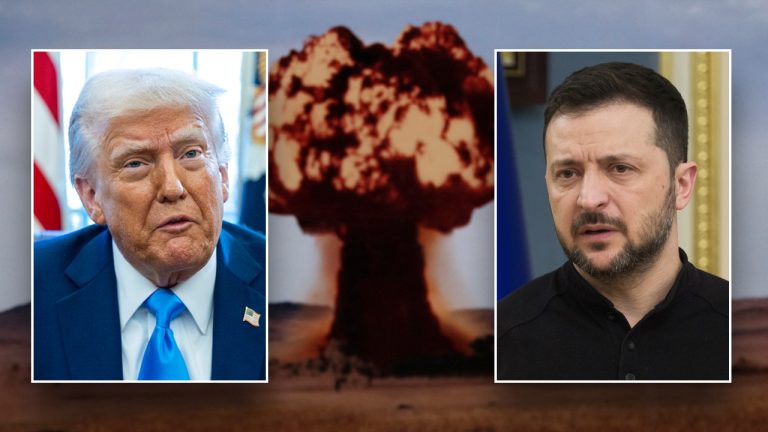
Author and Page information
- This page: https://www.globalissues.org/article/805/cop20-lima-climate-conference.
- To print all information (e.g. expanded side notes, shows alternative links), use the print version:
On this page:
- Introduction
- Meeting outcome
- Mainstream media reporting
- In context: common but differentiated responsibilities
- More information
- News stories from IPS
Introduction
 December 1 – 14, 2014, Lima, Peru was the venue for the 20th annual United Nations Climate Change Conference, also known as the 20th Conference of the Parties — or COP 20.
December 1 – 14, 2014, Lima, Peru was the venue for the 20th annual United Nations Climate Change Conference, also known as the 20th Conference of the Parties — or COP 20.
The purpose of this conference was to create a universal agreement on climate change action and begin the process of financing mitigation.
Back to top
Meeting outcome
The meeting ended with all nations agreeing to cut back greenhouse gas emissions. Known as the Lima Accord, this treaty is not legally binding and countries do not have to specify how much they will cut back, instead agreeing to report their plans back by March 2015.
While for many it sounded like a successful outcome, others were disappointed, such as poor countries struggling to rebuild from current impacts of climate change who were alarmed at the disappearance of loss and damage commitments from the final text which has been part of the discussion for years.
The global climate movement, 350.org, summarized the disappointments and hopeful aspects of the meeting outcome, noting
- The new agreement does not reflect the urgency of the climate crisis
- Some good agreements – but no measures to ensure implementation
- Least developed and vulnerable nations left out in the cold
- Divestment (from fossil fuel reliance) is more important than ever
- Global momentum for real solutions is stronger than ever and will keep on going.
In trying to put a positive spin on the overall disappointment they felt, they concluded, In the end, a global climate treaty is just one tool to combat climate change. Real change is going to continue to come from the grassroots. The UN Climate Talks continue to be a place where the world’s countries comes together to debate this crisis and people are putting in enormous efforts to make sure Paris [the next global meeting] won’t be like Copenhagen
which was full of disappointments despite big promises.
Samantha Smith, Leader of WWF’s Global Climate and Energy Initiative, was quite scathing of the meeting outcome saying that political expediency won over scientific urgency
. She also noted that Developed country governments couldn’t even manage to explain how they will deliver the long-promised US$100 billion per year in climate finance by 2020. In a move that seemingly dismissed the plight of the most vulnerable countries, they completely removed any meaningful language about ‘loss and damage’.
Back to top
Mainstream media reporting
As with almost every previous meeting (with occasional exceptions), mainstream media reporting was very poor given the importance of this global issue. Where the meeting was reported it was generally towards the end, and just sound bite type summaries saying all countries agreed to emission cuts and that this was a major improvement.
While the treaty continued to say it honors the long-standing common but differentiated responsibilities
the mainstream media reporting (as in most years) has typically failed to provide explanation and context of this principle that has been an important part of these talks for over 2 decades; that poor and developing countries should not bear the same responsibilities as the developed ones (because they are not the cause of the anthropogenic carbon emissions over the previous decades that have led to this, which is detailed much more on this site’s page on climate justice).
A hint towards this principle may have been presented as a viewpoint of China or India, given the impression they are being obstacles, rather then explaining this principle in more context.
That was just one of the issues skirted over or omitted from common reporting. Others included issues on financing, technology support for poorer nations, etc. Behind the scenes, for decades, rich countries have stalled on these things or actively avoided trying to share technology etc, which is barely reported.
Every year, this criticism is made of mainstream reporting, so without following these negotiations each year, it can be easy to come away with the impression that this meeting had a positive outcome.
But as this discussion hosted by Democracy Now! shows, there were a number of important issues of contention:
Back to top
In context: common but differentiated responsibilities
Many years ago all nations agreed that climate change was largely the result of actions from today’s industrialized nations, as carbon dioxide — the main greenhouse gas — stays in the atmosphere for decades. Yet, the poorest would end up suffering the most for a problem they largely did not cause. The approaches to mitigation (emissions reduction) would therefore be different for those groups of countries — the common but differentiated responsibilities principle.
It is in this context that the discussion for loss and damage has come about. And it is something that rich countries are keen to get rid of .
The years of resistance on this issue (and many others) means each time it is discussed again the reactions seem to get even more hostile. Combined with the lack of detailed context in the mainstream media coverage of this aspect, it then becomes easier each time to see culprits as China and India given their enormous greenhouse emissions in recent years, compared to the far greater amount by the industrialized nations over the longer period. See this site’s section on climate justice for more detailed background.
And as this site has said for years on the climate justice page, the rich nations are delaying any meaningful action until it is eventually — and disproportionately — paid for the by the developing nations. New Delhi based Nitin Sethi, associate editor at Business Standard, interviewed in the earlier mentioned video says the same thing, but more frankly:
There is no action that’s going to happen between now and 2020. All of that was to be done by the developed countries. They [rich nations] basically have just said at Lima that
we are not going to do any more than what we’re doing so far, and the burden can shift onto the post-2020 era, where other developing countries have to share it.So, to me, it indicates really negotiation in bad faith.
Back to top
More information
As the conference is still underway as this page is written, more information will be added here after the event is over.
For more about the issues from other organizations, here are some starting points:
Back to top
News stories from IPS
Below is a list of stories from Inter Press Service related to the Lima climate conference and its aftermath.
-
World News in Brief: Sandstorm alert, albinism and climate change, rights in Peru
– UN News

Sand and dust storms are increasingly threatening people’s health, safety and livelihoods – and climate change is making matters worse.
-
Beware Climate Finance Charade
– Inter Press Service

KUALA LUMPUR, Malaysia, Oct 11 (IPS) – Finance has increased, not reduced, greenhouse gas (GHG) emissions. Meanwhile, funding for mitigation, and especially adaptation, is grossly inadequate, with little for climate losses and damages.
-
Wrecked by Climate Change, Farmers in Kashmir Shift to Lavender Cultivation
– Inter Press Service

BIJBEHARA, INDIA, Sep 29 (IPS) – Creating resilience is crucial to climate change justice. In Bijbehara, a hamlet south of Kashmir’s capital, Srinagar, lavender farming has meant farmers grappling with unseasonal rains, prolonged heat waves, and severe water scarcity have found a new means of survival.
-
Wanted: A New Local Oversight Structure to Achieve SDGS, Climate Action & Biodiversity Preservation
– Inter Press Service

KATHMANDU, Nepal, Sep 29 (IPS) – The links between Agenda 2030 and SDGs, including climate action and biodiversity preservation are clear and straightforward. Yet, leveraging them, and bringing them to together in a unified framework, remains extremely challenging.
-
Peru Faces Challenge of Climate Change-Driven Internal Migration
– Inter Press Service

LIMA, Sep 28 (IPS) – Nearly 700,000 people have migrated internally in Peru due to the effects of climate change. This mass displacement is a clear problem in this South American country, one of the most vulnerable to the global climate crisis due to its biodiversity, geography and 28 different types of climates.
-
Stopping war, stepping up climate action: Francis wraps up UNGA78
– UN News

Ending the war in Ukraine, promoting climate action and ramping up efforts to achieve the Sustainable Development Goals (SDGs) topped the agenda of the High Level Week of the UN General Assembly, the man at the helm of the global platform for dialogue said on Thursday.
-
At UN, Pacific Island leaders sound alarm on climate crisis, call for urgent action
– UN News

Leaders from Pacific island nations collectively rang the alarm on the relentless march of climate change, marked by rising sea levels, extreme weather events and coastal erosion, wreaking havoc and threatening the very existence of their homelands.
-
‘Humanity has opened the gates to hell’ warns Guterres as climate coalition demands action
– UN News

“Horrendous heat is having horrendous effects”, the UN chief declared on Wednesday, as a broad global coalition of “movers and doers” politicians, business and civil society gathered in New York for the first ever Climate Ambition Summit.
-
‘No nonsense’ Climate Ambition Summit: What you need to know
– UN News

The race to protect the planet is about to accelerate, as world leaders, business giants, and experts gather to attend the Climate Ambition Summit on Wednesday.
-
Youth Rally for Peace Through Climate Justice at the UN
– Inter Press Service

UNITED NATIONS, Sep 15 (IPS) – “What do we want? Climate justice! When do we want it? Now!” youth chanted in an unusually lively conference at the United Nations Headquarters.
-
Climate inaction puts lives on the line: WMO
– UN News

Insufficient progress towards climate goals is slowing down the global fight against poverty, hunger and deadly diseases, according to a report released on Thursday by the UN World Meteorological Organization (WMO).
-
The Africa Climate Summit: Anti-Colonial Rhetoric Meets Green Colonialism
– Inter Press Service

OAKLAND, California, Sep 13 (IPS) – In the wake of the recent Africa Climate Summit, which convened in Nairobi from September 4-6, 2023, the world’s attention was drawn to the pressing challenges facing the African continent as it grapples with the devastating effects of climate change.
-
Experts make case for tackling climate and sustainable development together
– UN News

A new UN report delivers a strong message to world leaders heading to New York for the General Assembly’s annual high-level week: tackling the climate and sustainable development crises together will help accelerate overall progress on the 2030 Agenda.
-
Africa Finds Common Ground on Climate as Nairobi Declaration Unveiled
– Inter Press Service

NAIROBI, Sep 07 (IPS) – To cool down a burning planet, Africa’s Head of State and Government at the inaugural Africa Climate Summit unveiled the ‘Nairobi Declaration’ as curtains fell on the inaugural Africa Climate Summit held in Nairobi, September 4-6, 2023, under the theme “Driving Green Growth and Climate Finance Solutions for Africa and the World.”
-
May the Race for Climate Justice Leader Begin
– Inter Press Service

AMSTERDAM, Sep 07 (IPS) – Super-charging efforts and setting a fresh direction for the next phase of climate policymaking is what’s urgently needed and on offer this month during the 78th UN General Assembly in New York, as mass heat waves, devastating wildfires, fatal floods, and withering droughts continue to wreak havoc across continents.
-
African Startups Mull Home-Grown Solutions to Combat Climate Change
– Inter Press Service
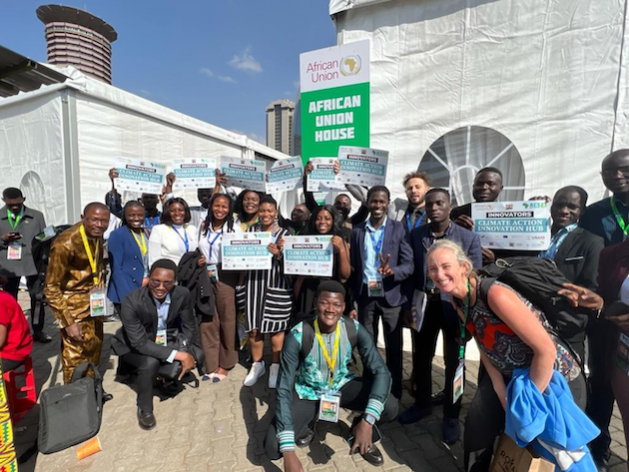
NAIROBI, Sep 06 (IPS) – A group of young African startups made their presence known at the Africa Climate Summit in Nairobi, Kenya, hoping to play a big role in promoting home-grown climate-oriented solutions.
-
‘Climate breakdown’ alert as air quality dips during heatwaves: UN chief
– UN News

Amplified by wildfires and desert dust fanned by climate change, more frequent heatwaves are leading to a sharp drop in air quality and human health, the World Meteorological Organization (WMO) said in a new report on Wednesday.
-
Toothless Global Financial Architecture Fuelling Africas Climate Crisis
– Inter Press Service

NAIROBI, Sep 05 (IPS) – Africa needs approximately USD 579.2 billion in adaptation finance over the period 2020 to 2030, and yet the current adaptation flows are five to 10 times below estimated needs. As thousands convene in Kenya’s capital, Nairobi, for the Africa Climate Summit, the first time the African Union has summoned its leaders to solely discuss climate change under the theme ‘Driving Green Growth and Climate Finance Solutions for Africa and the World’, the backdrop is a country on the frontlines of a climate crisis.
-
Africa’s Potential: Leading Food System Transformation and Climate Resilience
– Inter Press Service

NAIROBI, Kenya, Sep 05 (IPS) – When a continent with 65% of the world’s arable land struggles to feed its 1.4 billion people, we know something is wrong. The African and global food systems need a rethink. The urgent and pressing need to address a more productive, transparent, equitable food system, poverty and the far-reaching effects of climate change requires us to forge alliances among diverse stakeholders and sectors.
-
‘I am because you are’ – Climate Justice Through the Spirit of Ubuntu
– Inter Press Service

PORT LOUIS, Sep 04 (IPS) – The Africa Climate Summit 2023 is expected to start with renewed hope. In its 60+ years of post-independence history, Africa has contributed around 3% of Green House Emissions, accounts for approximately 2.6% of global trade, and less than 3% of the world’s GDP in 2021.
-
Philippines: Indigenous knowledge takes on climate crisis
– UN News

In the mountainous province of Bukidnon in the southern Philippines, local indigenous groups are being forced to adapt to the alarming impacts of climate change. With UN support, communities are making significant strides, using centuries-old knowledge to forge sustainable solutions.
-
The Case for Climate Justice
– Inter Press Service

JOHANNESBURG, Sep 01 (IPS) – If you’ve never seen a landslide before, it’s a terrifying force of nature. Those who have found themselves in the thick of this phenomenon say the earth beneath your feet suddenly begins to give way, the ground cracks open, and large masses of soil, rocks, and debris come crashing down. It is as if the very ground you stand on is rebelling against the changing climate and its impact on the delicate balance of the environment.
-
Bangladesh’s Battle Against Climate Change: A Nation at Risk
– Inter Press Service

DHAKA, Sep 01 (IPS) – Bangladesh faces one of its most significant challenges ever — climate change. Rising sea levels, extreme weather events, and changing rainfall patterns are already profoundly impacting this nation.Bangladesh, a picturesque land of rivers, lush green landscapes, and a vibrant cultural heritage, faces one of its most significant challenges ever — climate change.
-
Africa Climate Summit: a Critical Opportunity for Collective Action on Climate Change
– Inter Press Service
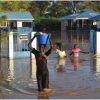
NAIROBI, Sep 01 (IPS) – As an African, I have seen first-hand the devastating effects of climate change. I have met communities displaced by floods in Malawi, Mozambique and Zimbabwe. I have spoken to farmers from Northern Kenya who have lost their crops to drought. These experiences have made me acutely aware of how urgent it is to address the climate crisis.
-
African children bearing the brunt of climate change impacts
– UN News

Children in Africa are among the most at risk from climate change impacts but are being woefully deprived of the financing necessary to help them adapt, survive and respond to the crisis, the UN Children’s Fund (UNICEF) said in a new report on Friday.
-
UN expert urges international support for The Bahamas amid climate crisis
– UN News

A UN-appointed human rights expert on Friday urged the international community to increase assistance to The Bahamas and other small island States that face elevated threats from natural disasters resulting from climate change.
-
Climate Justice Delayed, Is Justice Denied
– Inter Press Service
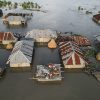
BULAWAYO, ZIMBABWE, Aug 31 (IPS) – Climate justice is not just about survival but also about benefit sharing, reducing inequality and enabling a better society that thrives – Yamide Dagnet, Climate Justice Director at Open Society FoundationsThe failure to tackle the climate change crisis is an injustice to the millions who have lost lives and livelihoods through floods, extreme weather, and wildfires, pointing to the urgency of adaptation and mitigation finance, experts say.
-
Africa Climate Summit: Time for Tangible, Impactful, & Accountable Climate Action
– Inter Press Service

OAKLAND, California, Aug 29 (IPS) – African leaders, public officials, and private-sector executives will converge in Nairobi, September 4-6, at the Africa Climate Summit (ACS) – coinciding with the UN Africa Climate Week (ACW). In recent years, Africa has been the poster child for climate solutions, with carbon credit and offset projects gaining popularity among the public and private sectors alike.
-
Building Agricultural Resilience in a Changing Climate: Strategies to Safeguard Crop Production Amidst Extreme Weather Events
– Inter Press Service

URBANA, Illinois, USA, Aug 18 (IPS) – Across the U.S., and around the world, extremes in weather patterns, from drought to excessive heat to flooding to wildfires to outbreaks of insect pests and disease have become frequent and are predicted to continue to become more intense because of climate change, and the warming of our planet.
-
World Bank Climate Finance Plan Little Help, Unfair
– Inter Press Service

KUALA LUMPUR, Malaysia, Aug 16 (IPS) – The World Bank plans to use public funds to subsidize private finance, ostensibly to mobilize much more capital to address the climate crisis. But the new plan is likely to be a distraction, not the solution it purports to be. Rich nations have contributed most to the current climate crisis. They are primarily responsible for the historical emissions and greenhouse gas (GHG) accumulation of the last two centuries.
Back to top
Author and Page Information
- Created:



